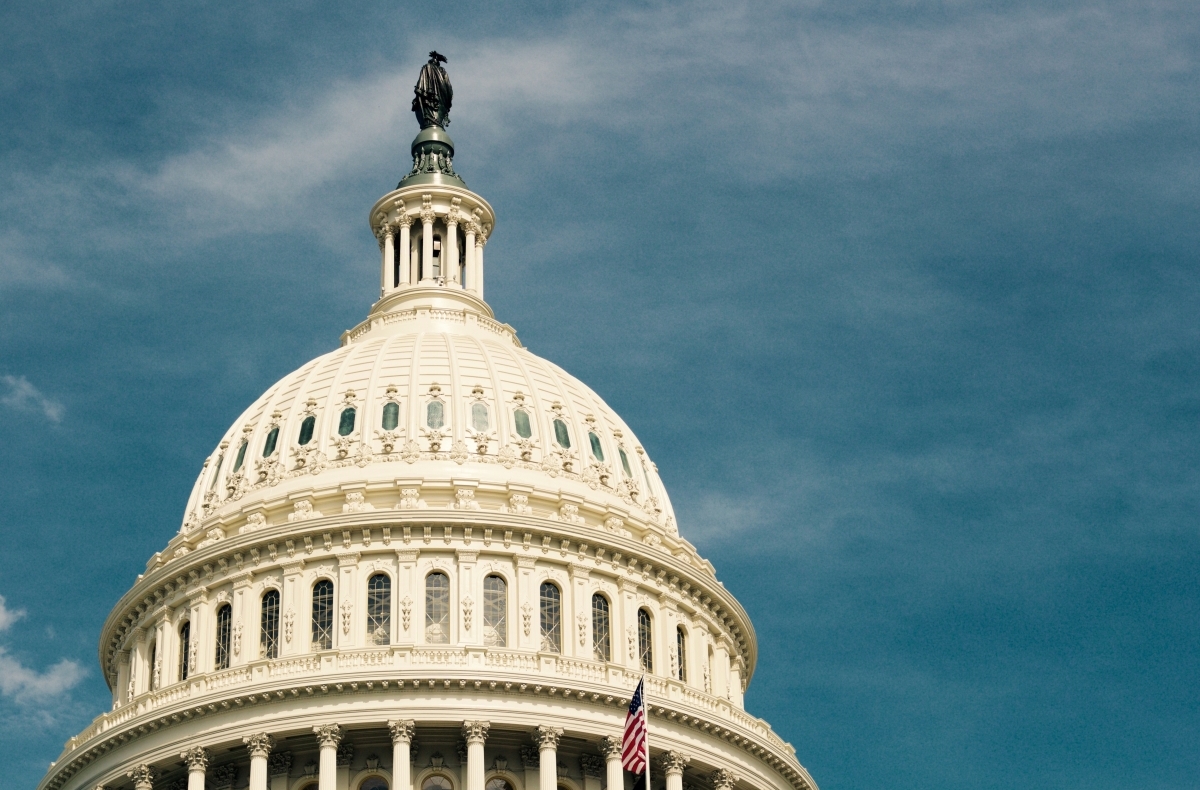The Woods Institute is now part of the Stanford Doerr School of Sustainability
Midterm Meanings

The U.S. Capitol
Jomar / Unsplash
Nov 8, 2018
By:
The recent midterm elections could have far-reaching implications for the direction of federal- and state-level environment and energy policy. Chris Field, Perry L. McCarty Director of the Stanford Woods Institute for the Environment and Sally Benson, codirector of the Precourt Institute for Energy, discussed ways forward, lessons learned and more.
What do the midterm election results mean for policy action on climate change, renewable energy and other environmental issues at the state and federal level?
Field: I suspect that, at least initially, we will see more change in visibility of climate change as an important issue than change we can measure in concrete policy actions. It would be great to see new commonsense measures on renewable energy policy and disaster risk reduction but it will take some time and effort to get those topics on the front burner. One possibility that is important for climate change adaptation is an infrastructure package grounded in an awareness of the risks from climate change. That might be a possibility, even in the near term.
What, if anything, do the results mean for federal rollbacks of environmental regulations?
Benson: I think that international competitiveness of our industry is a big issue here. For example, our auto manufacturers sell cars all around the world. Many other countries have very stringent automobile efficiency standards. If we disincentivize our manufacturers from making the most energy-efficient cars, our competitiveness will be hurt. Likewise for many other products we make, energy efficiency matters.
Field: If the administration wants to make deals with the House, there may be some new opportunities for environmental protection. I would love to see a serious discussion about infrastructure (which both the president and the Democrats support), including infrastructure related to the environment. On the other hand, if things stay confrontational, the administration might emphasize dismantling of environmental regulations as a way to demonstrate that it doesn’t need Congress to act.
Moving forward, what environment and energy issue solutions have the most potential for finding consensus among Americans?
Benson: Most Americans believe that climate change is occurring and want the government to do something about it. Rising sea levels in Florida, extremely intense rainfall that has caused flooding in Houston and the Carolinas, wildfires in the West — these are all causing real harm today. At the very least, improving our infrastructure to be more resilient is something that everyone can get behind.
Field: There are real opportunities for addressing the financing of renewable energy. Lots of potential investors, from across the political spectrum, are frustrated by some of the current impediments.
What do the midterm state-level elections tell us about broader environment and energy changes afoot?
Field: It was perhaps unsurprising that state-level initiatives to address climate change, especially the carbon tax in Washington, didn’t carry the day. The Washington outcome reinforces the point that it is really hard to design a way to price emissions so that it is broadly supported by the public. But it is also really important. The economists tell us that the most efficient way to address climate change is a price on carbon. We really need examples to see what works and how to assure that no groups are treated unfairly.
What one piece of scientific advice would you give U.S. House and Senate majority leaders before they begin to craft new environment and energy legislation?
Benson: The climate and energy challenge is so large that we are quickly moving beyond the point where piecemeal solutions will do. The time for action is now. We have a decade or two to sort this out before we are fully locked in to warming of 2 degrees Celsius or more. No leader should want to explain to their grandchildren that they had a chance to do something and didn’t.
Field: There are lots of commonsense ways to make progress on climate change as components of win-win strategies that are creating jobs, protecting people’s health, and improving our nation’s security. Let’s work on the stuff that yields benefits we all want.
Benson is also a professor of energy resources engineering in Stanford’s School of Earth, Energy & Environmental Sciences; and director of the Global Climate & Energy Project. Field is also founding director of the Carnegie Institution for Science's Department of Global Ecology; the Melvin and Joan Lane Professor for Interdisciplinary Environmental Studies at Stanford’s School of Humanities and Sciences and School of Earth, Energy & Environmental Sciences.
Contact Information
Christine H. Black
Associate Director, Communications
650.725.8240
ChristineBlack@stanford.edu
Devon Ryan
Communications Manager
650.497.0444
devonr@stanford.edu
Rob Jordan
Editor / Senior Writer
650.721.1881
rjordan@stanford.edu


